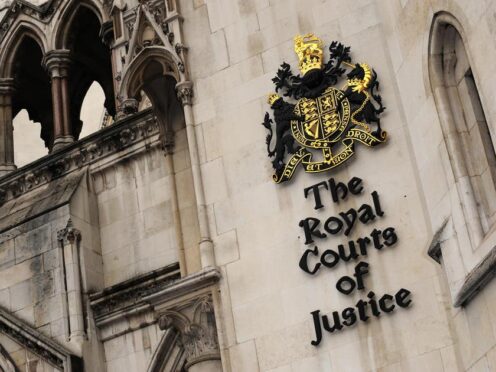
A Palestinian teenager trapped alone in Gaza could be reunited with his family in the UK after the Government agreed to reconsider its decision to deny him permission to enter the country following a High Court challenge.
The 18-year-old, known only as BSO for legal reasons, has been alone in Gaza since the conflict with Israel began on October 7 while his parents were visiting his siblings in the UK.
BSO, who was described as “entirely reliant” on his family since birth, was denied permission to join them by the Home Office and the Foreign Office (FCDO), who said a “delicate policy balance” needed to be struck between evacuating civilians and pursuing “wider goals with the Israeli government”.
Barristers representing the teenager launched a legal challenge against the decisions, claiming BSO’s life was in “imminent danger”.
The Government was due to contest BSO’s claims on Wednesday, but at the start of the hearing in London barristers for both departments said that they would reconsider their decisions.
Following the decision, BSO’s brother, who lives in the UK and attended the hearing, said he remained “anxious” over the Government’s position and said it had not shown “empathy” or “practised discretion”.
He said: “Please, consider the circumstances, consider the fact that this is an 18-year-old boy who has always lived with his family. This is a case of forced separation, accidental separation.
“They need to consider these facts. The fact that this boy is alone and in a warzone at the moment in Rafah, and every day the Israeli army is talking about advancing.
“The circumstances are pretty grave and I would expect any reasonable person to not try to find ways out of trying to help, and try to find ways to help.”
BSO’s parents were due to return to Gaza on October 26 last year, the High Court was told.
The teenager had stayed in Gaza as he was due to start university.
He has since become displaced “quite a few times” due to the conflict, his brother said, with his family home believed to have been destroyed.
BSO was described as being “energetic” and “very smart” but has since become “hopeless” due to his situation, and is often unable to speak to his family due to communication blackouts.
An application for entry clearance made to the Home Office on December 7 was rejected, with a similar application to the Foreign Office for support also refused.
BSO has since suffered from “extreme fear” over the risk to his life, his barristers said, with his mother described as “inconsolable” and diagnosed since with depression and post-traumatic stress disorder.
Lawyers said BSO was happy to comply with Home Office entry requirements, such as providing biometric data, but could not provide this without first being evacuated from Gaza with Foreign Office support.
Charlotte Kilroy KC, representing the teenager, said in written submissions that the Home Office and FCDO’s “conscious choice” to “thwart BSO’s access to family reunification” was “particularly disappointing, as well as unlawful”.
She said in written submissions: “BSO therefore faces an impasse created by the actions of the Foreign Secretary and the Home Secretary.”
Lawyers for the FCDO said before Wednesday’s hearing that its decision was on no possible basis unreasonable and that “difficult judgments” needed to be made.
In written submissions, Julian Milford KC, representing the FCDO, said: “The FCDO assessed that the greater the number of names the FCDO sought to clear with Israel, the harder it would be to secure clearance, which might in turn have negative ramifications both for British nationals still in Gaza, and on wider diplomatic relations.
“In that respect, the FCDO has to make difficult judgments on how best to expend limited diplomatic credit, in the context of a crisis situation.
“A delicate foreign policy balance between assisting civilians in Gaza and pursuing (the FCDO’S) wider goals with the Israeli government in the context of the conflict also sits behind the decision under challenge.
“How (the FCDO) strikes such a balance is quintessentially a non-justiciable issue for his own judgment.”
The Home Office and FCDO have been approached for comment.

Enjoy the convenience of having The Sunday Post delivered as a digital ePaper straight to your smartphone, tablet or computer.
Subscribe for only £5.49 a month and enjoy all the benefits of the printed paper as a digital replica.
Subscribe